A Cautious Celebration of Kamala Harris's Historic VP Nomination
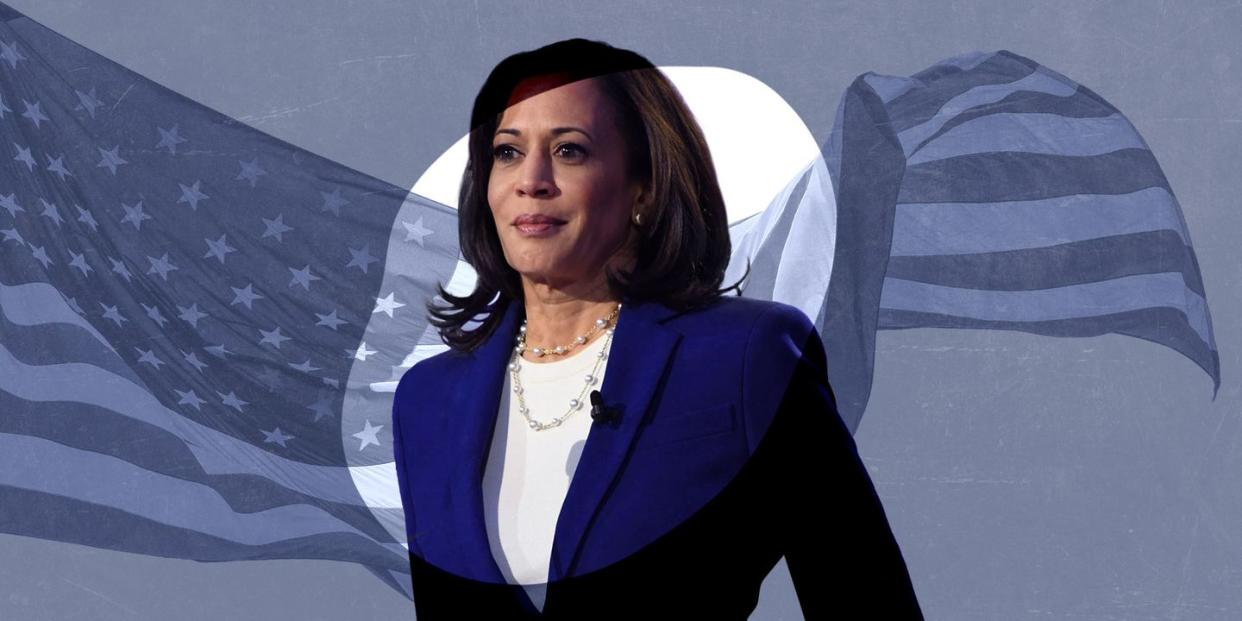
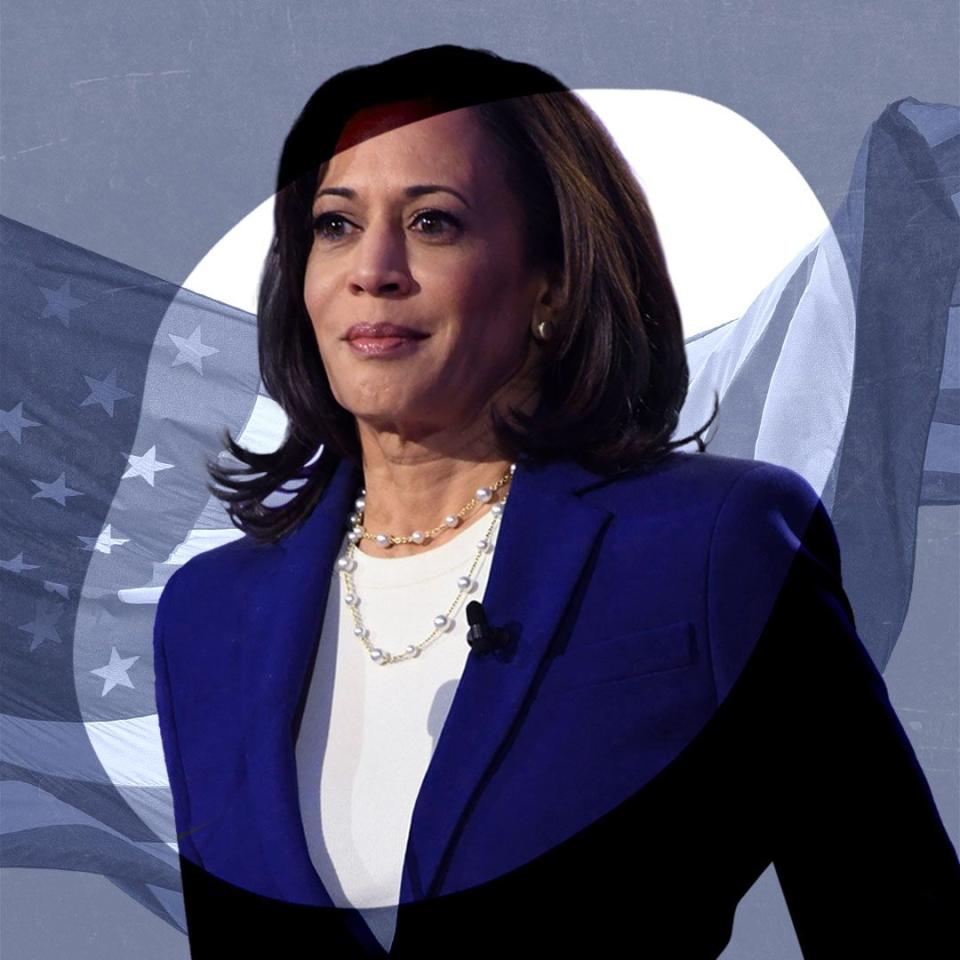
“This is a big fucking deal,” Joe Biden tried to whisper to Barack Obama back in 2010, moments after introducing the president at the signing ceremony for the passage of the Affordable Care Act. Rather than a private aside, the wide bank of media cameras and mics picked up the expletive and broadcast it live. The unexpected f-bomb was a classic Biden moment: crude, brash, but honest. The Affordable Care Act was imperfect and controversial, but it was, in fact, a big fucking deal.
As Biden introduced his running mate, Senator Kamala Harris of California, during their first joint public appearance last Wednesday, I secretly hoped that he might again drop his filter and let the unvarnished truth slip. This, too, is a big fucking deal.
Naming Harris infused much-needed life into the Biden campaign, resulting in a fundraising surge, giddy headlines, and enthusiasm in advance of an unprecedented virtual convention. As the first Black woman standing for the vice presidency on a major party ticket, she is a serious, historic force with whom the nation will now reckon.
News that Biden had chosen Harris makes me feel encouraged, conflicted, and exhausted. I count myself among the many voices who’ve spent years calling on Democrats to acknowledge Black women as the center and foundation of the party’s electoral success. Biden’s choice of Senator Harris is an encouraging sign that the message has been received. Still, as a Southerner dedicated to Stacey Abrams's efforts to shift partisan possibilities below the Mason-Dixon, I feel conflicted about the choice of a senator from the solid Left coast. And I am exhausted envisioning the racist and sexist bullying undoubtedly awaiting Harris in the coming months. Harris herself has evidenced the thick skin and straight spine necessary to take the incoming assault, but witnessing racialized and gendered political brutality, as we have so often had to endure during the Trump years, has chipped away at my spirit. I’m exhausted even by the presumably innocuous need to carpet social media with accurate pronunciations of "Kamala."
More than anything, I am curious about what other Black women are thinking and feeling at this moment. So seeking insight from younger sisters, I put together a group of women to get their thoughts on the matter. I called on Roquel Crutcher, a policy entrepreneur at Next100 and an advocate and activist for social justice and educational equity, and Noëlle D. Lilley, a native Californian who is now the Ida B. Wells scholar at the Craig Newmark Graduate School of Journalism at the City University of New York. I sought out Bay Area scholar activists Monique Morris, Ed.D., the executive director of Grantmakers for Girls of Color and founder of the National Black Women's Justice Institute, and Monica McLemore, an associate professor in the Family Health Care Nursing Department at the University of California, San Francisco, to explore insights gleaned from years as constituents of Harris.
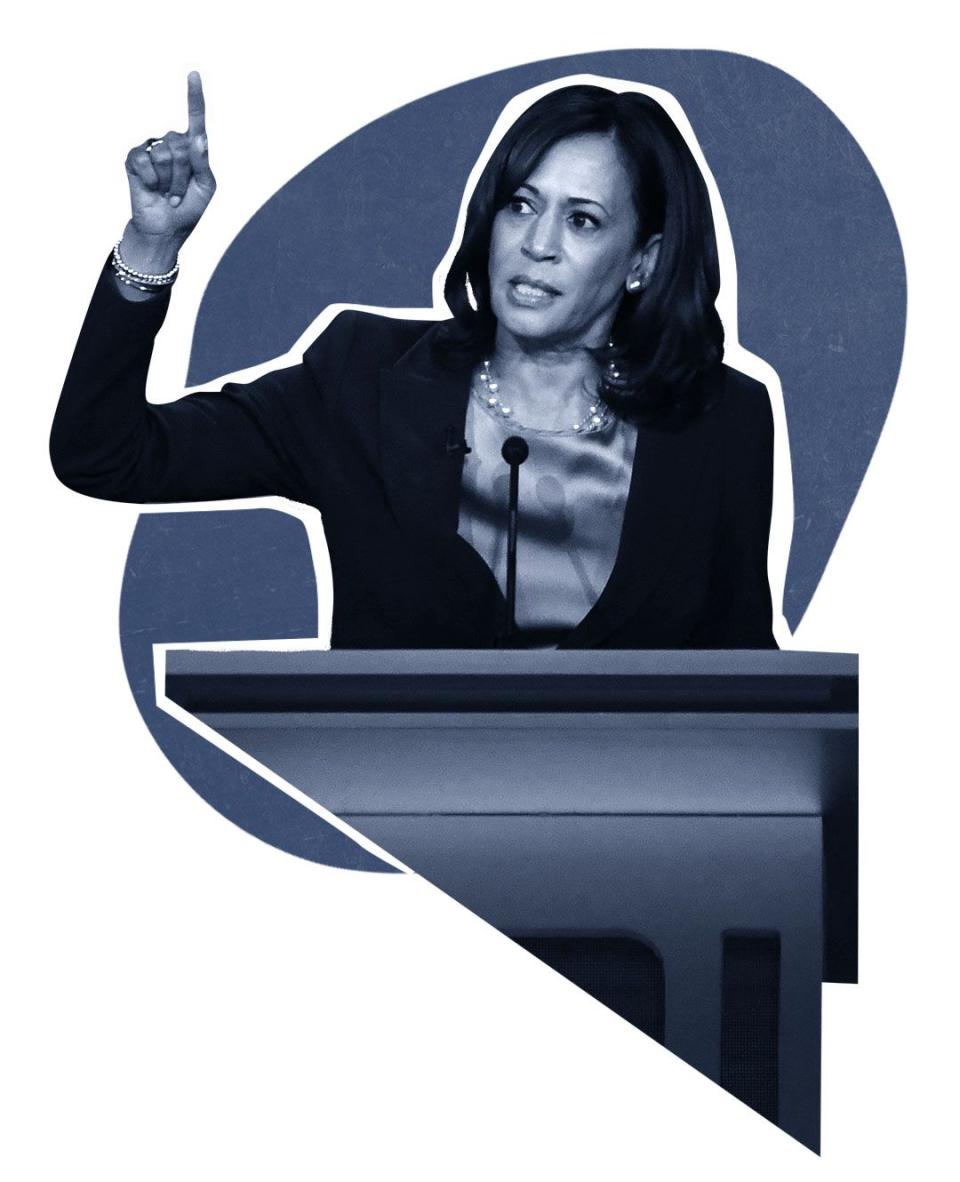
I also recruited my longtime friends and colleagues Blair Kelley, an associate professor of history at North Carolina State University, and Yolanda Pierce, the first woman dean of the Divinity School at Howard University; both are scholars of Black women’s history and have personal ties to Harris’s alma mater, Howard University. Further included in the discussion are Joanne Smith, the founding president and CEO of Girls for Gender Equity, and Janice Johnson Dias, a sociologist and the president of the GrassROOTS Foundation; both are first-generation Black immigrants. Joanne Smith is Haitian-American, and Johnson Dias is Jamaician, and they each lead a nonprofit advocacy organization working with and on behalf of Black girls. There are also Nina Smith, a communications strategist and the former traveling press secretary for 2020 presidential candidate Pete Buttigieg, and Raquel Willis, the director of communications for the Ms. Foundation and former executive editor of Out Magazine, who can provide keen strategic insight into Harris’s nomination. And finally, I tapped the first Black woman to lead Planned Parenthood, Alexis McGill Johnson, who is also the president and CEO of the Planned Parenthood Federation of America, for valuable reflections on the journey awaiting Harris.
Our conversation represents a small sample of the concerns and hopes of a handful of Black women. We align on some points and diverge on others. But each of us is leaning in to embrace the power and potential of the moment. Together, we express concern, but also excitement and possibility. Ours is a cautious optimism combined with fierce protectiveness, rather than an unrestrained rejoicing—with the exception of Pierce and McLemore. Like Harris, both women are members of Alpha Kappa Alpha Sorority, Incorporated, America’s first Black sorority founded in 1908 at Howard University. Even a casual glance at Black Twitter reveals the unreserved enthusiasm of the members of AKA in the wake of this historic nomination.
Most of us in the group, however, share Nina Smith's sentiment. “I am feeling both fear and hope at the same time," she says. "Is there a word for that?” Yes. Courage.

The historic 1988 presidential campaign of the Reverend Jesse Jackson was coordinated and directed by four young Black women political operatives: Donna Brazile, Yolanda Caraway, Leah Daughtry, and Minyon Moore. The women shifted to support Massachusetts governor Michael Dukakis when he became the Democratic nominee, but white male leaders in Dukakis’s campaign tried to marginalize them. In response, Brazile and Moore took over a conference room, taping a handwritten sign to the door that read, “COLORED GIRLS … WE SHALL NOT BE MOVED.” In 2018, these “hidden figures” wrote the story of their 40 years of party labor and leadership in For Colored Girls Who Have Considered Politics. A new generation of Black women staffing Hillary Clinton’s 2016 presidential campaign understood themselves as inheriting and extending the legacy of the original Colored Girls. They are the original Squad, unrelenting and strategic.
Nina Smith is the first to invoke them during our conversation. “This nomination is pure joy for the Colored Girls who have labored in the Democratic Party for years.” It's a sentiment echoed by McGill Johnson. “This is a strategy to ensure Black women will engage this year. From the Colored Girls to today’s activists, Biden is choosing to lean into the base.”
Harris is undeniably a strategic choice for Democrats who owe the 2008 and 2012 victories of President Obama to the overwhelming support and historic turnout of Black women voters. But as the daughter of a Jamaican father and an Indian mother, Harris’s embodied experience of blackness and the way she is received by Black communities is complicated. Harris is not dogged by the “Is she Black enough?” angst that plagued Senator Obama in 2008. Instead, questions of Harris’s authenticity are rooted in culture, experience, and policy choices.
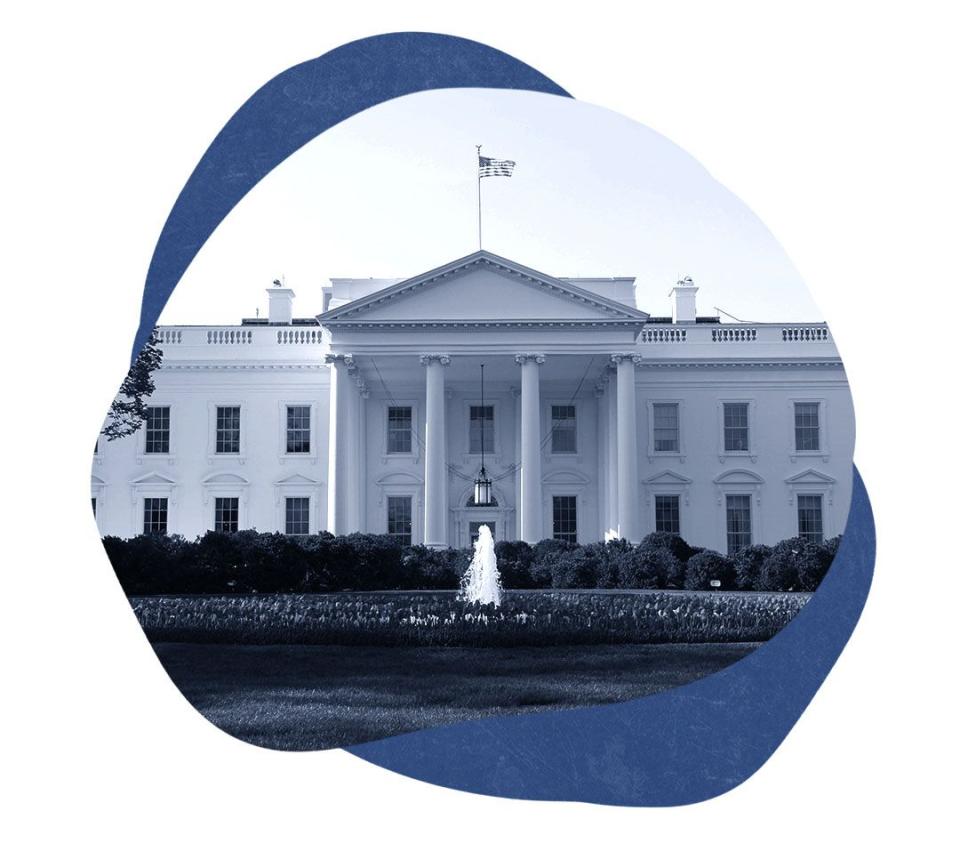
A scholar and organizer, Johnson Dias offers a careful reading of Harris. “It is fitting that Isabel Wilkerson has released her new book, Caste: the Origins of Our Discontents, just as we have a Black woman VP nominee emerging from two caste-based cultural systems,” she says. Johnson Dias comes from Jamaica, the birthplace of Harris’s father, and notes, “As a Jamaican, I know it is crucial for us to acknowledge that America is steeped in anti-blackness rooted in a specific hate of indigenous Black people. This is not Harris’s fault, or my fault, but it is our responsibility to acknowledge. We must be honest about all the ways we use the lilt of our voice, the choice of our food, the discussion of our roots to send certain signals saying, 'I am not like these Black people. I am different.' She must not lean into anti-blackness. She must not allow others to use her identity to justify and cover their own anti-blackness.”
The place Johnson Dias has touched with her analysis is a tender one, sore to even the slightest pressure. Harris is not the descendant of Black American slaves. She is cisgender and heterosexual. She has light skin and straight hair. She is beautiful by mainstream standards represented by white women. These embodied realities are not in her control and indicate nothing about her identity or allegiances. At the same time, Black women understand how these embodied characteristics are read by others. We know that light-skinned, multiracial “pretty” girls navigate school, work, and even the health care system on privileged terms.
Lilley remarks, “She’s a thin, conventionally beautiful, acceptable representation of Blackness. Now that doesn’t make her any less Black. But I can’t help but think about the vitriol that was directed at Stacey Abrams, and it’s hard to not see the thinly veiled fatphobia and misogynoir.”
“I’ve suggested for years that you need to get a mirror,” jokes Kelley, my dear friend and colleague for decades, pointing out the obviousness of my own biracial parentage and light skin. It's a reasonable critique and perhaps why I insist that to be an effective advocate, the privileged must acknowledge and resist unearned benefits of status. I want Harris to give a public side-eye to the anti-blackness that assumes our “version” of blackness is somehow safer, more respectable, more palatable.
Lilley actually wonders if Harris’s identity will matter at all. “This isn’t 2008. This isn’t 2012. Identity politics are important, but as the saying goes, 'All skin folk ain’t kinfolk.' So choosing a Black female candidate doesn't guarantee votes, especially among younger people of color,” she says. “As a California native, much of Harris’s criminal justice record concerns me, particularly her tough stance on truancy while she was a local and state prosecutor. I’m concerned that this history, if not properly addressed and accounted for, will lead to a lack of support from other progressives at a time when it is crucial for the Left to rally together."

Having chosen Harris as his campaign partner, Biden is positioned in the direct center of Black political history: vice president to the nation’s first Black president and principal to the nation’s first Black woman vice presidential nominee. In a year marked by an impeachment, a global pandemic, and the potential invasion of murder hornets, 2020 continues to surprise.
Even as Biden occupies this largely symbolic space, a powerful second wave of the Movement for Black Lives is forcing substantive change within the American criminal legal system. On the ground, the movement is winning victories and shifting our understanding of what is possible. Abolishing prisons and defunding the police are now the agenda of city council meetings. With these fragile changes hanging in the balance, many might wrestle with the implications of a VP role for Harris.
Observers point to the decade Harris spent as San Francisco’s district attorney and California’s attorney general as the main reason she was unable to gain traction during the Democratic presidential primaries. Black voters lamented the all-white field of candidates left after the departures of Harris, Senator Cory Booker, and Secretary Julián Castro, but the individual suspension of Harris’s campaign elicited little more than a collective shrug from many Black women voters. The Ms. Foundation’s Willis reveals the source of Black women’s caution, lamenting, “This is the first time the dominant discourse is about dismantling the carceral state, and Biden chooses a running mate whose entire career has been about support of the carceral state. I want to be excited, but it is hard when I know that for most of her career, Harris has not put the most vulnerable Black women at the center of her work.”
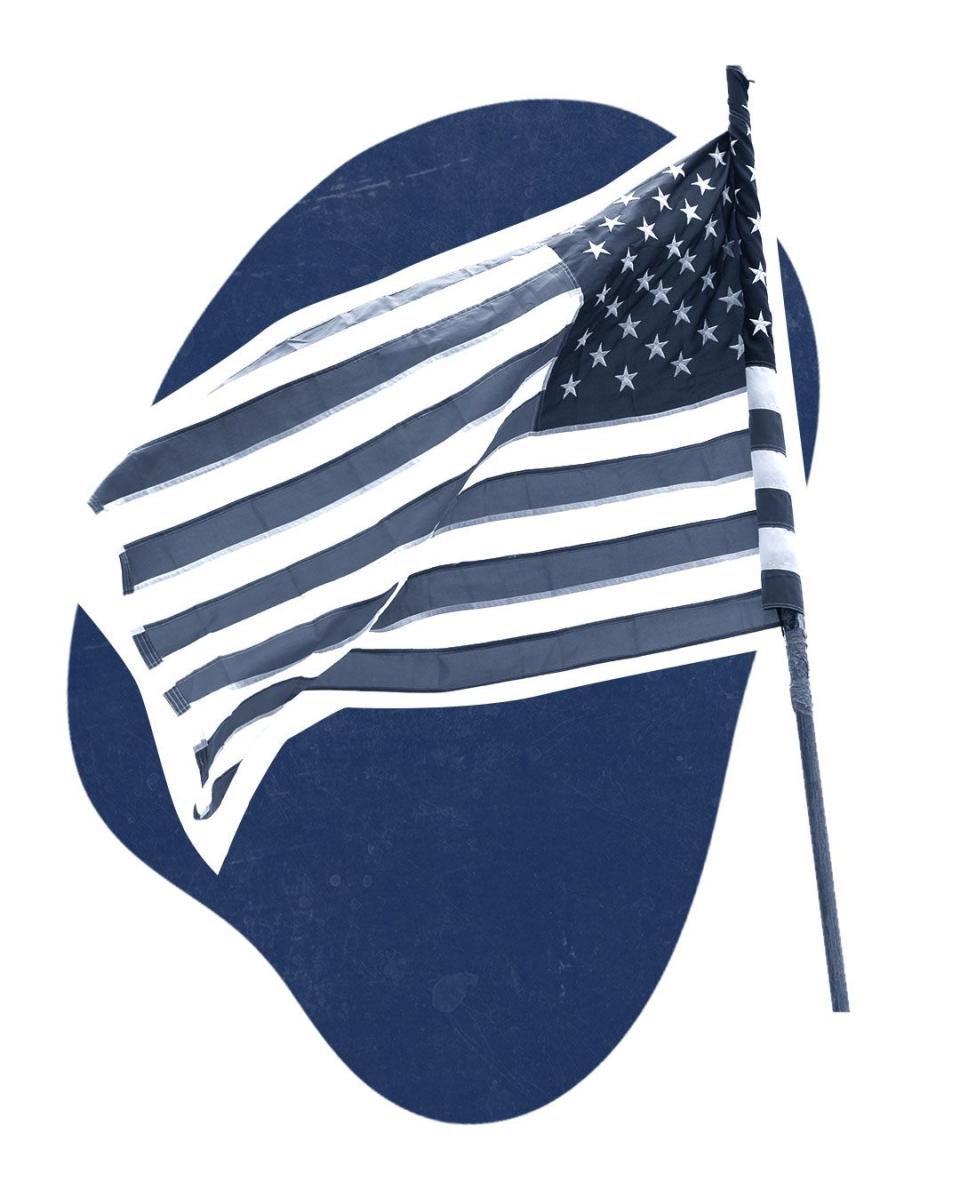
Morris offers a different perspective on Harris, drawing from her own experience as a Bay Area activist who worked directly with Harris during her years as “top cop.” “Right now, we are (rightfully) talking about structural change and radical transformation, rather than the reforms we were pushing a few decades ago,” she says. “But in order to do this, we need a leadership team that is open to the challenge of listening and learning. For me, she’s demonstrated that she has that capacity. She launched the Back on Track Initiative in San Francisco to help formerly incarcerated people reenter our communities, the Smart on Crime Initiative, which challenged the 'tough on crime' rhetoric that was so pervasive in political discourses around the country.”
Author of Pushout, the Criminalization of Black Girls in Schools, Morris and her research inspired Representative Ayanna Pressley to introduce congressional legislation to create trauma-informed approaches to school discipline for Black girls. This makes all of us pay particular attention to Morris’s personal memory of Harris. “I personally remember her willingness to help end the commercial sexual exploitation of girls,” she says. “Almost two decades ago, I was in a small meeting with women who were concerned about the growing trend of our girls being sex-trafficked in the Bay Area—almost no one was talking about it. Most political figures dismissed our concerns as niche. But Kamala Harris entered that meeting with a genuine interest in how she could help. She also went to discuss the issue with survivors, and most of them were Black girls.”
Not everyone is convinced though. “We can’t forget as a prosecutor, she threatened to incarcerate parents whose children didn’t go to school,” reflects Joanne Smith. “It would go a long way for her to admit to the harm that she caused (Biden should as well) and demonstrate how she’s pivoted from carceral solutions to systemic racism in our country. I understand that people in power see apologies as weaknesses, but here is where Biden–Harris can set themselves apart from the status quo and, most importantly, the current administration.”
McLemore, a San Francisco–based medical professional working primarily with Black mothers and infants, encourages a consideration of Harris’s full record. “She introduced the Maternal CARE Act in 2019, which is an important step toward health equity, but, yes, even then, I would like to see that bill altered to prioritize midwives and doulas.” McLemore’s praise for the overall direction of Harris’s work while sustaining criticism of her incrementalist approach captures how many in this conversation feel.
“We cannot look to her as a liberator,” remarks Johnson Dias. “I have spent a great deal of time studying her record, and I see her being like a genie: using her power on behalf of those who hold the lamp. The key is to be sure Black communities are holding the lamp.”
The extraordinary protests and policy work of the Movement for Black Lives seems well positioned to ensure that Harris will indeed be responsive to the concerns of Black communities. “It is important to remember what she got right during her time as attorney general,” remarks McGill Johnson. “She was quite visionary in her insistence on collecting and publicizing policing data. I believe the Movement for Black Lives is a powerful tool if she and Biden have the opportunity to govern."
The most powerful constraint on Harris is less likely to be any given interest of a community and more likely to be her own running mate and his willingness to carve out autonomous space for Harris to operate in if they should win. “Let’s begin with Biden,” insists Smith. “We can’t expect anything of Harris unless she has a meaningful seat of power within the administration. She must be more than a symbol; she needs a portfolio. If I were advising, I would emphasize that it is critical she has the room to openly champion and move through the administration key elements of The BREATHE Act."

Jacqueline Woodson’s 2014 memoir, Brown Girl Dreaming, is a reminder of the infinite potential of Black girlhood and womanhood; an expansive, optimistic spectrum of possibility to which our sister circle keeps returning as we wrestle with and revel in Harris’s nomination. Together, we share our Black girl dreams for Harris.
Our dreams are collective and personal, substantive and symbolic. And, of course, there is a little fun in our dreams as well. Pierce says she “would be quite happy to see an AKA party stroll at one of the inauguration balls.”
“I dream of Kamala Harris being the leader the people need by being in conversation with grassroots organizers,” says Willis. “I dream of her expanding the circle of power and influence so that immigrants, the disabled, incarcerated folk, trans folks, queer folk, and all Black people can speak for themselves.” Willis’s dream is shared by all of us.
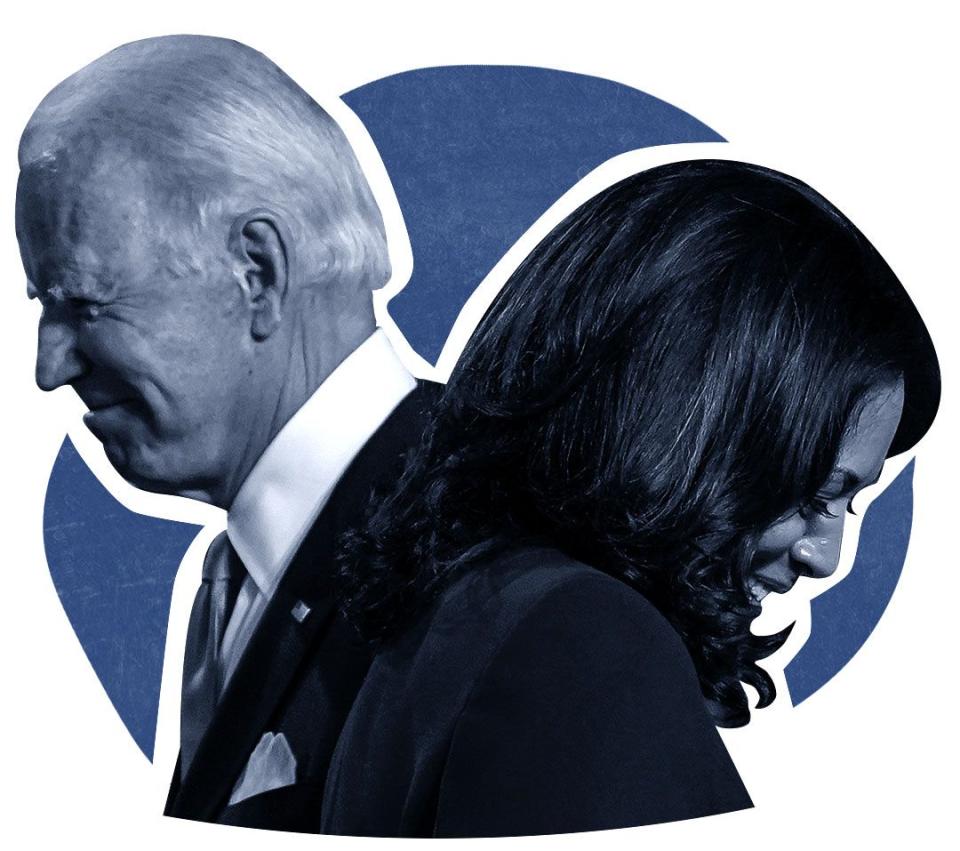
Joanne Smith dreams of a Vice President Harris who will adopt “the Black Girls Bill of Rights.” Johnson Dias dreams of Harris learning strategic lessons from Queen Nanny, the 18th-century Jamaican leader who escaped enslavement to establish communities of free Black people in the country’s Blue Mountains. “I dream she hears the voice of Queen Nanny saying, 'Make it impossible for them to harm your people. Make them contend with you.'” McGill Johnson says, “I dream she shows us all what a free Black woman looks like.”
That Harris may stand as a symbol of Black women’s potential for autonomous action and freedom undergirds all our policy ambitions for the potential VP. Crutcher, a policy entrepreneur, says her boldest dream is for Harris “to be authentic and unapologetic,” while Nina Smith dreams that Harris “transforms the ways we talk about, work with, think about, protect, and engage Black women in this country.”
Harris occupies this historic moment because so many Black women labored without freedom, in obscurity, while dissembling their true selves. I suspect the dreams so many of us have for the potential vice president are those we want for ourselves. To have our work honor our ancestors, inspire our children, build our community, and still leave room to be our fully authentic selves. Shirley Chisholm wrote, “I want history to remember me … not as the first Black woman to have made a bid for the presidency of the United States, but as a Black woman who lived in the 20th century and who dared to be herself. I want to be remembered as a catalyst for change in America.” It's a worthy dream for Harris as well.
You Might Also Like

